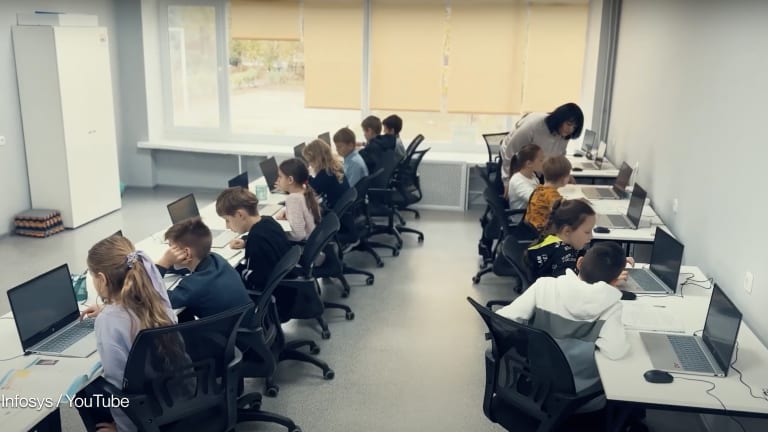
In their new book, “Corporate Responsibility Coalitions,” Jane Nelson and David Grayson examine how companies have worked together to tackle complex social problems — and how they will have to change to be effective in the future.
Nelson, who directs the Harvard Kennedy School’s Corporate Social Responsibility Initiative, and Grayson, who directs Cranfield University’s Doughty Centre for Corporate Responsibility, profile 12 business-led coalitions, from BSR to the Philippine Business for Social Progress to the World Economic Forum, charting their achievements and shortfalls.
Based on their research, Nelson and Grayson formulated 12 critical questions for these corporate responsibility coalitions. How business-led coalitions answer these questions, the authors write in this excerpt from their book, will determine their effectiveness in the 21st century.
Those responsible for creating, funding or running a business-led coalition in today’s world now face a very changed context.
Corporate social responsibility today is much more widely discussed and practiced; however, there are great disparities in how it is interpreted and implemented. The global financial crisis has led to renewed questioning of the legitimacy of business and the global social contract is widely seen to have broken down: there is a trust deficit. There is growing concern about a global sustainability crisis alongside the global trust crisis and the global financial crisis, and intense debate about what the business response to this sustainability crisis needs to be. There is also a global governance deficit.
In the face of criticisms, competitors and the sheer complexity of the issues now confronting business, we would argue that the business-led corporate responsibility coalitions now face a number of hard questions:
• How do the coalitions respond to multiple, complex and interlocking global crises: a global financial crisis, an emerging global sustainability crisis, a global trust crisis and a global governance crisis?
• How do generalist coalitions transform themselves as the agenda and territory becomes much more complex and sophisticated, and demands much deeper knowledge to stay relevant? Leading companies now need much more specialist and technical expertise. This is expensive, time-consuming and manpower-intensive for general membership organizations to provide compared to industry- and issue-specific coalitions and forprofit consultancies. Is a core coalition skill around convening businesses to discuss business and society-critical issues going to be sufficient in the future?
• How will coalitions keep momentum and their cutting-edge when a generation of charismatic founders and influential CEOs move on? These social entrepreneurs – “larger than life” personalities such as Oded Grajew and Ricardo Young (Instituto Ethos), Talia Aharoni (Maala), Robert Davies (IBLF) or Julia Cleverdon (BITC) – can be hard acts to follow
• How do coalitions maintain institutional memory when they have the mind-set of campaigning organizations and so do not typically codify their learning?
• How do coalitions retain “air-time” with top business leaders when competition and pressures for CEOs’ attention both within and outside their companies is increasing?
• Can coalitions reinvent themselves when their initial tasks to promote the idea of corporate responsibility and to provide basic how-to advice is seen to have been largely achieved, and, therefore, there is less funding for this basic awareness-raising activity?
• How do coalitions respond to the increasing competition from think-tanks, business schools, consultancies and NGOs working with business, and from rival coalitions, in what is increasingly an international marketplace for air-time with companies?
• Companies will increasingly see that membership of a coalition is not an insurance policy against criticism if there are any inconsistencies in their corporate behavior, so will some be less prepared to pay for membership, especially if they are not really committed to responsible business practices anyway?
• Are more multinationals going to look for organizations that can help them internationally rather than those confined to one national market, and if so, how do national coalitions respond?
• How do coalitions across the world engage with Chinese and other emerging-market headquartered companies as these companies internationalize?
• Will business-led coalitions become more or less influential versus multi-stakeholder alliances and networks such as national chapters of the UNGC or can they complement each other?
• Will general, business-led corporate responsibility coalitions become more or less influential versus single-issue initiatives (which are either business-only or multistakeholder)?
Excerpted with permission from Corporate Responsibility Coalitions: The Past, Present, and Future of Alliances for Sustainable Capitalism. Copyright 2013, Greenleaf Publishing. All rights reserved.
Read co-author David Grayson’s guest column:
Explore related content
Join the 500,000-strong Devex community to network with peers, discover talent and forge new partnerships – it’s free! Then sign up for the Devex Impact newsletter to receive cutting-edge news and analysis every month on the intersection of business and development.








